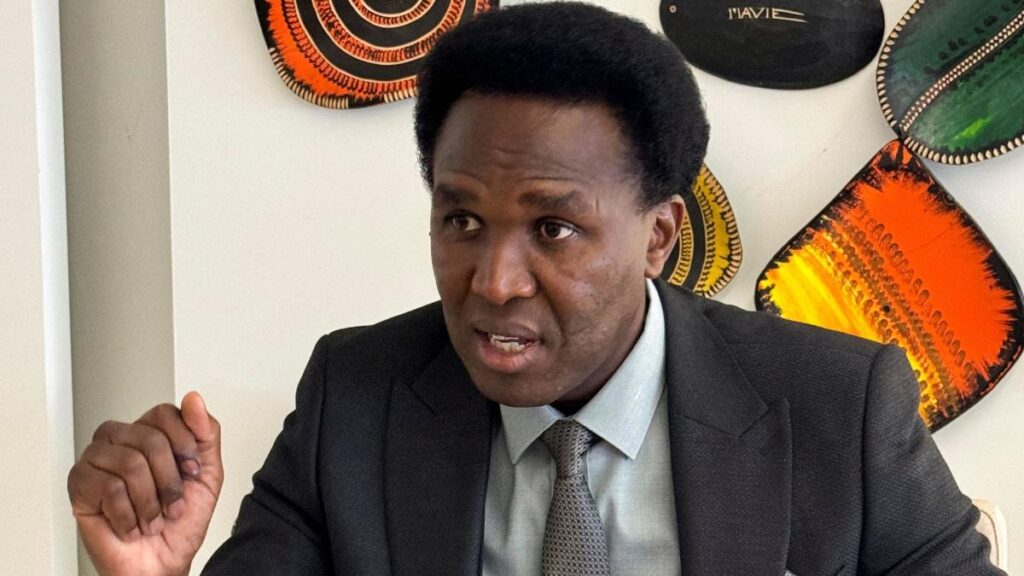Mozambique’s political landscape remains volatile following the disputed presidential election that took place last month. Venâncio Mondlane, the leader of the opposition party and runner-up in the election, has claimed to be a target of an assassination attempt while in South Africa, where he sought refuge after contesting the election results. In a video shared on social media, Mondlane detailed a harrowing experience where he narrowly escaped an attack at his residence. He recounted a dramatic escape involving a hasty exit through a back door and a frantic dash through a nearby hair salon, all while carrying his bags and accompanied by his family, including his wife and daughter. Despite these alarming claims, Mondlane has not provided any concrete evidence to support his assertions, and the Mozambican authorities have yet to issue any statements regarding his situation.
The backdrop of Mondlane’s claims is the contentious election results that saw the ruling party Frelimo’s candidate, Daniel Chapo, declared the winner with an impressive 71% of the votes, significantly overshadowing Mondlane, who garnered only 20%. Following the election, Mondlane and his supporters have faced heightened tensions, particularly after the violent deaths of his aide and lawyer, who were killed while attempting to challenge the election outcomes. In the wake of these events, Mondlane has called for public protests against the election results, which are currently being contested in court by Podemos, the political party that supported him. The response from the government has been severe, as nationwide protests have erupted, resulting in violent confrontations with the police that have led to numerous fatalities and injuries.
Despite the potential dangers, Mondlane is adamant about mobilizing his supporters for a national demonstration, which he labels a “final march” in the capital, Maputo. This planned event marks the culmination of a series of protests that he initiated a week prior. His call for a general strike remains in effect, despite the prime minister’s appeals for workers to return to their jobs. The political atmosphere is charged, with authorities reportedly responding to protests with violent force, employing tear gas, rubber bullets, and even live ammunition. Disturbingly, reports have emerged of police involvement in the deaths of children and several individuals during the protests, which have inflamed public anger and resentment.
The situation has garnered attention, not only from the local populace but also from international observers, as the Mozambican government has imposed restrictions on social media and internet access amid the unrest. These measures appear to be part of a broader strategy to quell dissent and limit the spread of information regarding the protests. The calls for demonstrations against the election results have resonated with segments of the population, leading to sporadic violent clashes with law enforcement personnel, further exacerbating the already tense environment.
As Mondlane continues to rally support and encourage citizens to express their discontent, the complexities of Mozambican politics become increasingly apparent. The Frelimo party’s strong grip on power, coupled with allegations of state violence and electoral malpractice, highlights a potentially volatile situation that could escalate further. With Mondlane’s alleged assassination attempt drawing attention to his plight and the unfolding events in Mozambique, the opposition’s struggle for justice and fair governance faces a formidable challenge.
Amid this turmoil, the commitment of both Mondlane and his supporters to continue advocating for their cause reflects a broader yearning for democratic processes and accountability in governance. The historical context of Mozambique’s political struggles underscores the significance of these developments, as they not only impact the immediate well-being of the citizens but also the prospects for future democratic engagements. As tensions rise and the international community watches closely, the outcome of this political crisis could reshape Mozambique’s trajectory in the months and years to come, highlighting the urgent need for dialogue, reform, and reconciliation in a nation still reeling from its tumultuous past.

